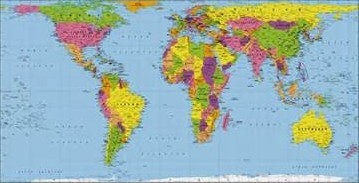Joy through Justice
QUOFLECTIONS™
ON SPIRITUALITY AND ETHICS
“The dignity of each human person
and the pursuit of the common good
are concerns which ought to
shape all economic policies.”
Pope Francis
Francis is often referred to as “the people’s Pope.” He relishes times for placing his hands of blessing upon the disabled, eating with and feeding the homeless, and washing and kissing the feet of Muslim girl inmates. He leaves his safety in the hands of God as he reaches out to the multitudes longing to touch him.
Similarly, Francis is also seen as a pastoral Pope: His gentle voice encourages us; his message of love and mercy inspires us; and his deeds exemplify his message. A man of prayer, he also humbly asks people to pray for him.
Despite much evidence, Francis is rarely called a prophetic Pope.
I speak not of a prophet who mysteriously foretells only a distant future but, as the Bible makes clear, a prophet as one who ‘forthtells’ a bold message, a compelling message, a message of justice meant for those within range of the prophet’s voice.
The Power of Prophetic Voices
All the major prophets—Isaiah, Jeremiah and Ezekiel—protested the injustices of their day inflicted by government and business. Common themes included the condemnation of greed, the exploitation of the poor, the disgrace of hunger amidst plenty, and the lack of care for the vulnerable. Jesus’ ministry amplified these concerns—and Pope Francis emphasizes these themes as well.
Jesus warned, “You cannot serve God and wealth.” Pope Francis decries “the idolatry of money.” The results of this misguided worship include “an impersonal economy lacking a truly human purpose.”
Jesus preached, “The love of money is the root of all evil.” Similarly, Pope Francis declares, “Inequality is the root of social ills.” He warns of the wealthy initiating “a new tyranny” which “unilaterally and relentlessly imposes its own laws and rules.”
At the Temple, Jesus overturned the tables of greedy moneychangers who gouged the poor. Likewise, Pope Francis topples the greedy dogma of those cheating the poor who thereby advocate “trust in the unseen forces and the invisible hand of the market.”
The object of faith is God, not capitalism.
The Pope Speaks
The Pope’s necessary critique of unbridled capitalism became evident as he was traveling to this country. Martin Shkreli, a former hedge fund manager, purchased a monopoly on a generic drug, Daraprim, essential for saving the lives of several thousand HIV and cancer patients annually. Shkreli announced a price rise from $13.50 a tablet to $750, an increase of more than 5,000 percent. Several years ago, each pill sold for $1.00.
This is one of many examples of what the Pope refers to as “ideologies which defend the absolute autonomy of the marketplace and financial speculation.” Francis is calling for laws and rules which promote justice as well as reforms for widespread corruption.
Pope Francis diagnoses our economic illness: “While the earnings of a minority are growing exponentially, so too is the gap separating the majority from the prosperity enjoyed by those happy few.” And he writes of the gluttony of today’s gougers: “The thirst for power and possessions knows no limits.”
Sound prophetic? It is indeed a bold spiritual message as well as a compelling political and economic critique of naked capitalism, obscene greed and profane power.
Pope Francis also addresses those of us finding ourselves enticed by consumerism, calling it “the great danger in today’s world.” We do well to avoid a “covetous heart, the feverish pursuit of frivolous pleasures, and a blunted conscience.”
The Pope instead calls us to The Joy of the Gospel, the title of his encyclical on the economy. To find this joy we need an interior life which enables us to avoid becoming self-absorbed. We also welcome others into our lives, especially the poor.
We will find joy, Francis writes, when we seek “the life in the Spirit which has its source in the heart of the risen Christ.”
©2015 Harry Rix. All rights reserved.
Related Articles
Minimum Wage is a Moral Outrage
The New Economy Favors the Wealthy
Wage Slavery is a Moral Outrage
Tea Party Pursues Economic Austerity
Payday Loan Reform in Rhode Island

